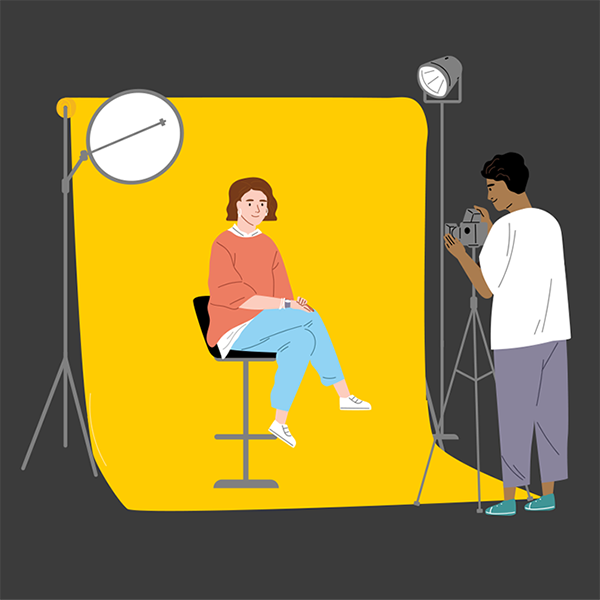For physicians and other healthcare professionals, making personal connections and building trust with current and future patients is vital. And for patients looking for a new healthcare provider, the journey most often starts online. Having professional headshots that potential patients can see across your website, in directories, on social media, and in Google search results help physicians make a great first impression.
Read on to learn why taking provider portraits is important for building your client base, and get some practical tips for creating a picture-perfect online presence.
Why professional headshots matter in healthcare marketing
While having a great portrait certainly doesn’t mean a doctor is any more competent or qualified, the reality is, prospective patients want to put a face with a name—and scrutinizing photos of potential providers is an inevitable part of their evaluation process.
Simply having doctor headshots across your web properties is table stakes in healthcare marketing today. Physicians with profile pictures get preferential search ranking, meaning more people will discover them in the first place. In fact, research by Doximity reveals that doctors with profile photos are viewed twice as often as those without.
But what truly sets a practice and its providers apart isn’t just any old photos. You know your physicians are providing a high level of quality care, so that should shine through in high-quality, professional headshots.
High-quality doctor headshots can make physicians appear more approachable and competent. They can put patients at ease, and make them feel more comfortable with booking an appointment.
On the flip side, using boring stock photography can feel inauthentic to potential patients. In fact, research shows that authentic photographs lead to 35% better engagement than generic stock imagery. Stock photos just don’t accurately represent your practice and the real people who work there, which isn’t helpful for people who are deciding whether or not to book an appointment. Worse yet, if you use real photos but they’re blurry or low quality, that can portray sloppiness or unprofessionalism that will turn people away.
Best practices for professional headshots
In healthcare, a great headshot shows patients that the person they’re putting their trust in is more than just a medical doctor, but also a real person they can feel comfortable reaching out to. On the flip side, not having a photo (or worse, having a bad one) could be associated with a lower quality of care, leading people to skip right over the credentials of someone who might actually be the perfect healthcare provider for them.
If your physicians do have professional headshots but they haven’t been done for a few years, we recommend a refresh.
Here are a few dos and don’ts for taking physician portraits:
- Keep headshots up to date. Again, patients want to see what a doctor looks like today, so keep photos fresh and avoid using any that are more than two or three years old.
- Have more than one headshot. Rather than using the same photo everywhere, have different professional headshots for different uses, like one that appears on listing pages and one (or more) for the physician’s bio page.
- Create uniform listing pages. In places where multiple doctor headshots are listed together—like directories—use the same type of background (gray works well) for consistency and to make the page more aesthetically pleasing. This also presents a strong brand for the healthcare organization which is important as well.
- Make sure photos are high resolution or sharp. Professional headshots should be crisp and clear. Blurry, low-quality, or poorly cropped photos look unprofessional.
- Keep outfits simple. Neutral colors are the most flattering and simple collars work best in professional headshots. For women, opt for simple jewelry that’s not too distracting.
- Remove clutter. For natural environment photos, remove any items in the background that could distract the viewer from what’s important—the physician’s warm smile.
- Don’t crop out body parts. Leave some breathing room around the head and/or body and avoid focusing in too close, which limits how the photos can be used (e.g., leave shoulders in headshots instead of cutting off at the chin; don’t cut off feet in a full-body pose).
- Capture personality. Get some professional headshots that paint a nice picture of who the doctor is as a person, and consider capturing a few in “regular clothes.” These are great for including on bio pages, microsites, or social media channels.
- Show compassionate confidence. A good headshot portrays a doctor who is personable and put together. While being photographed, doctors should sit up straight and make eye contact with the camera—just as they would in front of a patient.
Steal these powerful examples of how to integrate professional headshots into your healthcare website
Growing Grins Pediatric Dentistry

Community Health Network
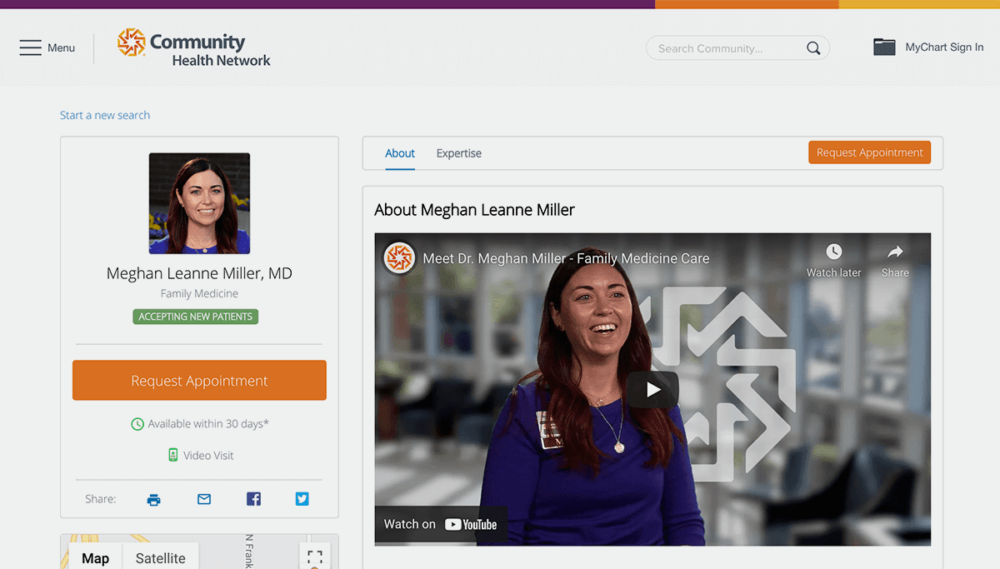
OrthoNebraska
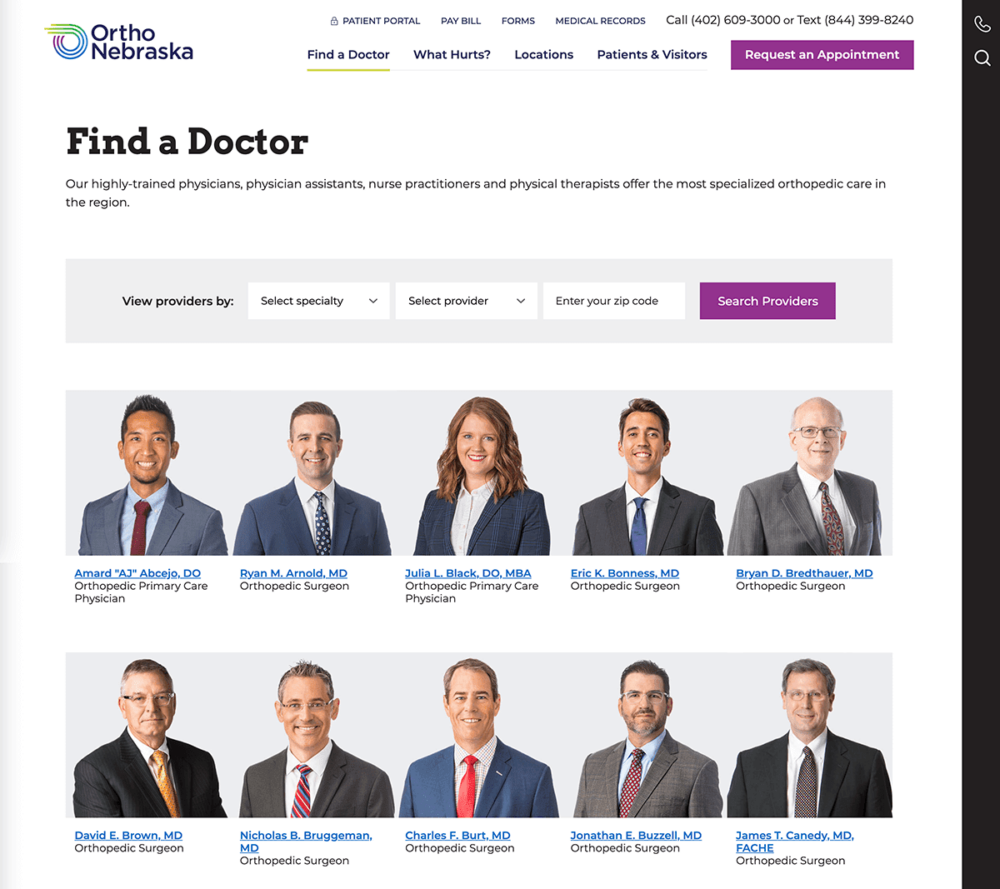
Indiana Hemophilia and Thrombosis Center
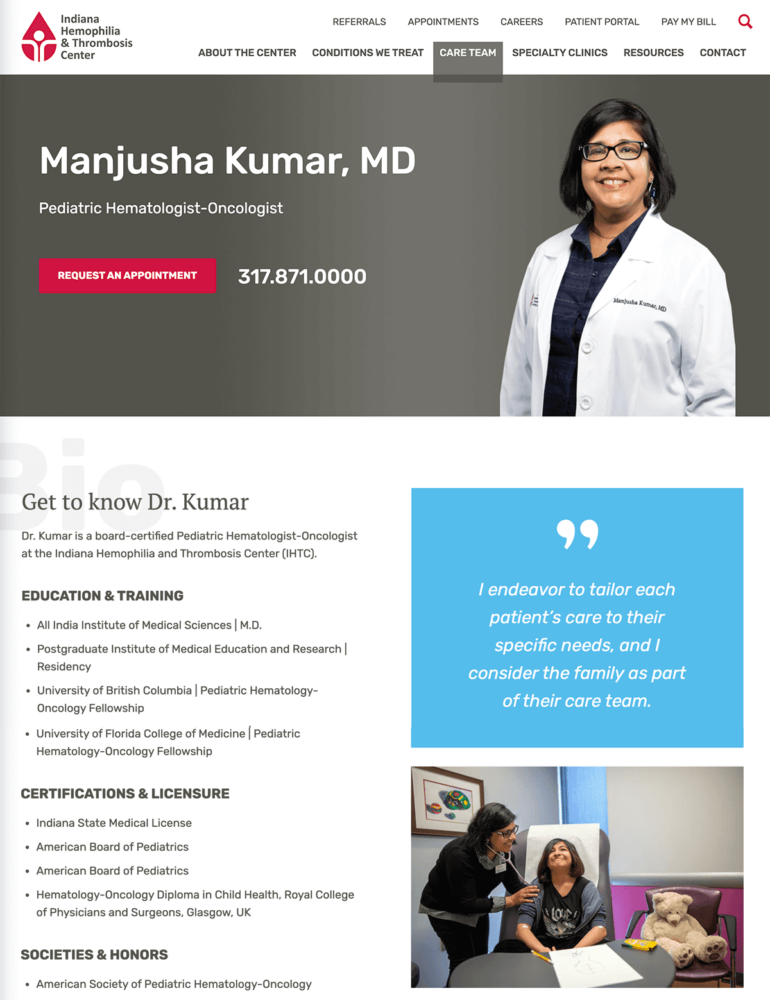
OrthoIndy
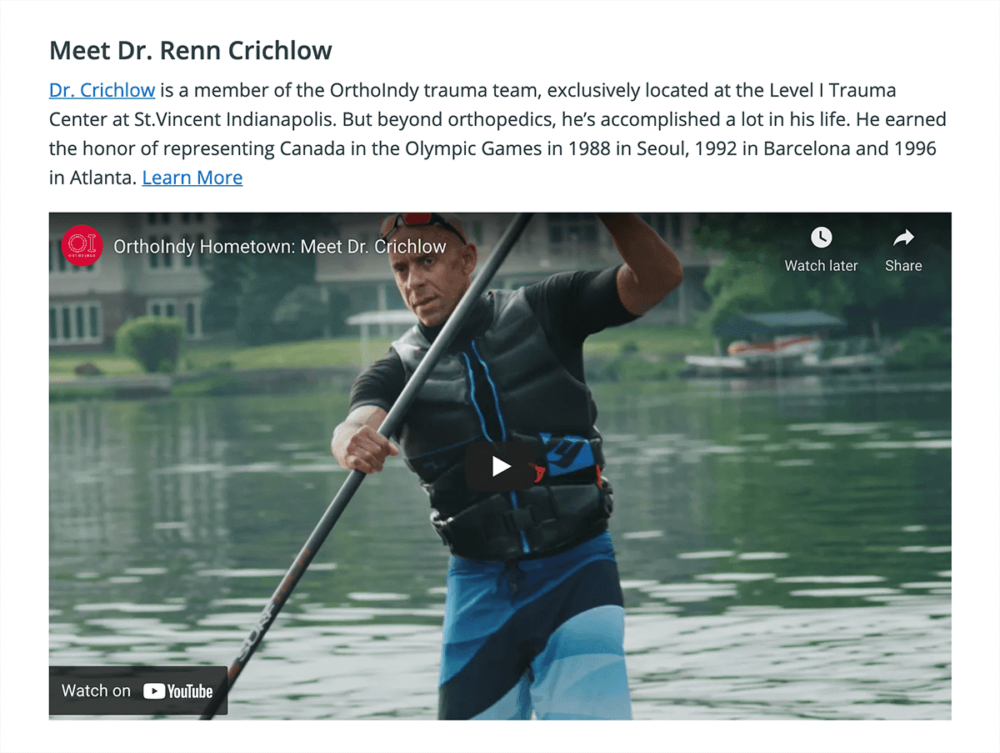
Logansport Memorial Hospital

Why taking high-quality physician pictures is a smart investment
Working with an experienced photographer makes all the difference and is well worth the investment. Just like your physicians are experts in their field, great photographers are highly skilled in their craft. They provide guidance on how to pose and use the right backgrounds and lighting to capture beautiful, authentic shots.
The greatest value of doctors’ professional headshots is that they can be used in so many different places—from your website and other online directories to social media, printed marketing materials, and more.
If you’re already working with a professional photographer, have them snap a few extra pictures outside of the doctor headshots, and start collecting other photos that may come in handy down the road. Having more options to work with is always better in healthcare marketing.
If you’re currently working with TBH Creative on your website and don’t already have photography included in your project, we can help.
